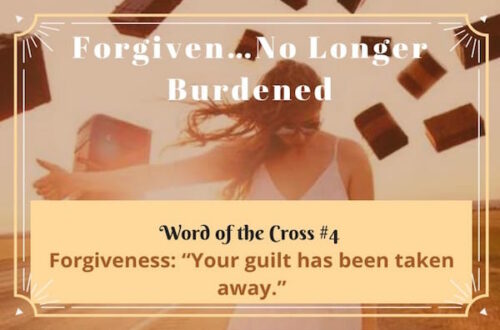Women Rule
A best-selling Christian writer tells men that God gave dominion to Adam and his sons after him. This week I read a book by another evangelical in which the author said that God gave dominion to Adam and his descendants.
Wait. What? Adam and his sons? Adam and his descendants?
No. God gave dominion to the man and the woman.
And we shouldn’t have to risk getting labeled as radical feminists to point out that women rule and were made to do so. The first purpose we see for woman—we find it in the mind of God, even before we read the story about woman being created as a helper or told to multiply with her husband—is that God created humans, both man and woman, to rule over or subdue the earth. That is the ideal. Consider my source:
Genesis 1:26–27: And God said, Let us make man in our image, after our likeness: and let them have dominion over the fish of the sea, and over the fowl of the air, and over the cattle, and over all the earth, and over every creeping thing that creeps on the earth. So God created man in his own image, in the image of God created he him; male and female created he them.
While we’re talking about bestselling authors, here’s another one. There’s a big idea floating about that God made men to be warriors and women to be rescued. The damsel in distress thing is super romantic. But it’s not biblical.
Consider the ideal wife in Proverbs 31—she is a woman of “valor.” That word is the same one used to describe David’s mighty men. In fact the entire text of Proverbs 31 is loaded with military terms. The biblical ideal is that woman is strong. She is not the pale, Elizabethan, dainty, helpless waif who’s a liability. She is a skilled partner in goodness, like Ruth working in the scorching sun and then hoisting bags of grain on her shoulders to go feed widowed Naomi. Ruth needed Boaz’s help, his partnership, but she was not passive or help-less in the process.
Moving to the New Testament we find men and women called to suit up with the armor of God and fight. Women need a cause as much as men do. And we have one!
Some might argue that since the fall things have changed. I would agree. But the ideal hasn’t. We don’t say it’s wrong to buy weed killer, even though weeds were part of the fall. And we don’t tell students learning Greek that they’re out of God’s will to take language courses because God confused languages at Babel. We’re to fight the effects of sin, not embrace them.
In the same way, we should embrace rather than re-craft the story about women having dominion in partnership with men–sisters and brothers shouldering the load together.
Women rule. And so do men. Together. Male and female. I am not at all suggesting women should act like guys or that they are superior to men. I’m saying women and men need to know who men and women were made to be and what God made them to do–and go do it!
A number of years ago my family stayed at Mt. Hood Lodge, which was built in the 1930s. A short film available in the room gave the history of the place. And I loved a story some of the old builders told. Apparently, when the men got pretty far along constructing it, they concluded something was missing—the influence of women. Up to a point the whole project had been a boy’s club. So they stopped and involved women in the process. And the end product, everyone later agreed enthusiastically, was much better for men and women having worked together.
My opera gloves are off to those guys. They came a long way, baby.



7 Comments
Sue Bohlin
“A skilled partner in goodness”
Oh man, this is good stuff! Thank you for providing a refreshing correction to some unfortunate teaching. It's possible to respect and honor men and masculinity without disrespecting and dishonoring women's strengths and glory, but you wonder if some of this teaching isn't coming from the unconscious perspective that "We have to put one down in order to lift up the other."
I see that helmet of salvation and raise you one breastplate of righteousness! 🙂
Thanks, Sandi.
Sandra Glahn
Holding Back
Thanks, Sue. I think that's exactly where it's coming from–the idea that a woman must hold back for the man's glory to shine. A better picture is for both to give their all, fully using their gifts so that God's glory will shine. And I'm not just talking about within marriage. A woman holding back in using her God-given gifts is "burying some of her talents."
I think some wrong thinking also comes from equating woman as "helper" with something like hamburger helper, where the hamburger is the main thing and the seasonings and noddles are secondary. Yet that is not the sort of helper we find throughout the Old Testament where God himself is an ever-present help in trouble. In my previous post I explained that the sort of help Adam needed in the garden (the solution to "not good") was a strong, capable partner.
Gin
The hamburger helper anology
The hamburger helper anology made me laugh! That's funny, but also true! Remember, there is no partiality with God! Joyce Meyer points out how many times in the Bible the word "ALL" is used. She said she circles all the "alls", which I have begun to do. It really gives you a new perspective!
Sue Bohlin
Woman NOT Hamburger Helper!
I'm so glad you brought up our misunderstanding of woman as "helper." What I understand is that 'ezer is "subordinate helper" like the heart "helps" us live and breathe. Not "lesser than" at all, but doing for us what we cannot do for ourselves, the one who meets our needs. Like, um, God Himself? (Ps. 121)
Sandra Glahn
Semantics?
I think we're on the same page, Sue, but I would probably choose a different word from "subordinate," as many people see an emphasis on hierarchy in that term. And I know you would never want to suggest that God is "below" humans in rank! And also, I don't think the writer of Genesis was going for a rank idea when he spoke of the woman as "helper." Often people juxtapose helper with leader, but the Bible writers never do that. "Head" is linked with "body," and "help" is the solution to "alone." The emphasis throughout the Genesis passage seems to be on how much the woman is like the man, unlike the animals. She is complementary to him, partnering with him to make "very good" what was "not good," and bone of his bone/flesh of his flesh/one flesh.
I read a book once on the spiritual life in which the author said we should never ask God for help, as that suggests we are the main event and he is the helper. Clearly the author had missed a few passages where godly people pleaded for help (like in half the psalms!) But the statement demonstrates the weakness of translation. In English "help" is strongly connected to rank and hierarchy. We might go with "enabler" except that it has so much baggage in the psych community. We certainly would not want to suggest that God or women enable inappropriately.
But it's that nuancing in English of help being lower in rank and like an assistant/secretary to the boss that gets us into trouble. I'm certain that is not the sort of picture being painted in Genesis. The LXX translators chose a word that was often used of a surgeon calling in a colleague on a difficult case. That appears to be much closer to what the writer has in mind. A strong skilled partner, not a plumber's helper–though if you need one of those, they sure come in handy!
Sue Bohlin
Loved everything you said, Sandi. . .
. . . I just forgot to include my [sarcasm: off] code in describing the heart, like the 'ezer, as "subordinate"! 😉
Pingback: